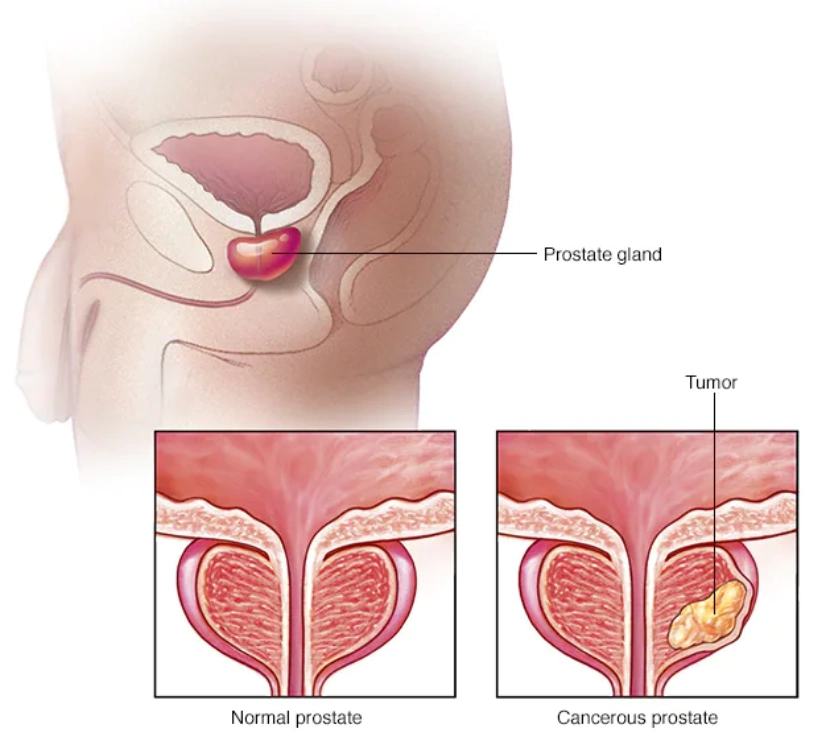Our Specializations
Prostate

Surgeries
- Open prostatectomy (open surgery)
- Laparoscopic and Robotic Prostatectomy
- Transurethral resection of the prostate (TURP).
- Transurethral incision of the prostate (TUIP)
- Laser surgery
Prostate Cancer
Prostate cancer is a prevalent form of cancer in men, affecting the prostate gland. Early detection is crucial for effective treatment. Awareness campaigns promote screenings, research, and preventive measures.

Symptoms
Prostate cancer may cause no signs or symptoms in its early stages. Prostate cancer in advanced stages may cause signs and symptoms such as:
- Trouble urinating
- Decreased force in the stream of urine
- Blood in the urine
- Blood in the semen
- Bone pain
- Losing weight without trying
- Erectile dysfunction
Causes
It’s not clear what causes prostate cancer. Doctors know that prostate cancer begins when cells in the prostate develop changes in their DNA. A cell’s DNA contains the instructions that tell a cell what to do. The changes tell the cells to grow and divide more rapidly than normal cells do. The abnormal cells continue living, when other cells would die. The accumulating abnormal cells form a tumor that can grow to invade nearby tissue. In time, some abnormal cells can break away and spread (metastasize) to other parts of the body.
RIsk Factors
Factors that can increase your risk of prostate cancer include:
- Older age
- Race
- Family history
- Obesity
Complications
Complications of prostate cancer and its treatments include:
- Cancer that spreads (metastasizes)
- Incontinence
- Erectile dysfunction
Prevention
You can reduce your risk of prostate cancer if you:
- Choose a healthy diet full of fruits and vegetables.
- Choose healthy foods over supplements.
- Exercise most days of the week.
- Maintain a healthy weight.
- Talk to your doctor about the increased risk of prostate cancer.
Visit Us
Zymus Hospital Address
No.1, K NO. 92, Nanjappa Complex, Kanakapura Rd, Raghuvanahalli, Bangalore City Municipal Corporation Layout, Bengaluru, Karnataka 560062
Menu
Quick Links
Copyright © 2024. Dr Anil Kumar T

